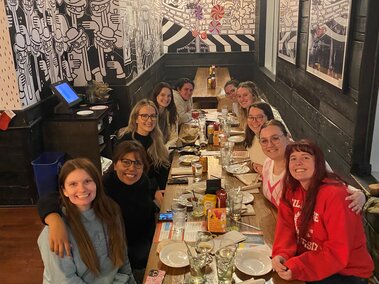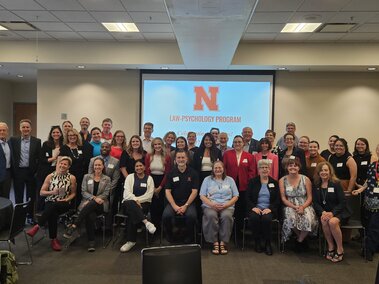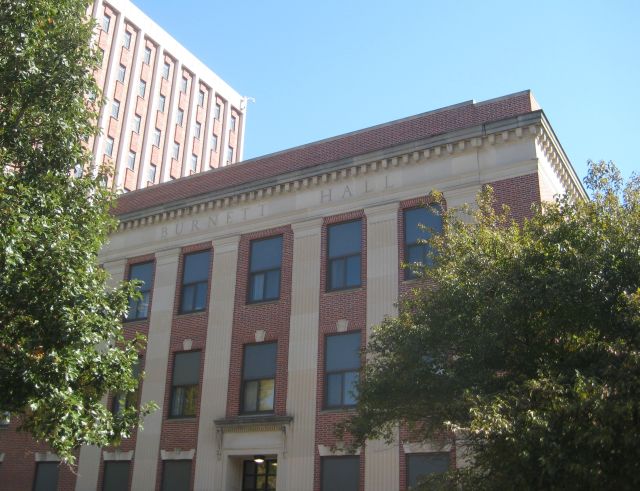The University of Nebraska Law-Psychology Program, in existence since 1974, is one of the leading programs that trains scholars who are engaged in basic and applied research and writing on psychosocial issues and problems related to the law. The Department of Psychology and the College of Law jointly sponsor the program, which is the world's oldest ongoing integrated program in psycholegal studies. It remains unusual in the breadth of training with students specializing in virtually any area of psycholegal studies.
Congratulations!
- Ashley Votruba, (Faculty) received the 2025 AP-LS (APA Div 41) Early Career Teaching and Mentoring Award
- Eve Brank (Faculty) received the 2024 AP-LS (APA Div 41) Distinguished Service Award
- Monica Miller (Alumni) received the 2024 AP-LS (APA Div 41) Mid-Career Award
- Tess Neal (Alumni) received the 2024 AP-LS (APA Div 41) Mid-Career Award
- Shannon Bader (Alumni), President, American Academy of Forensic Psychology
- Jennifer Groscup (Alumni), Law-Psychology Alumni, APA Council Representative
- Lori Hoetger (Faculty), AP-LS Newsletter Legal Update Editor, AP-LS 2025 Conference Co-Chair
- Monica Miller (Alumni), Editor, AP-LS Book Series
- Tess Neal (Alumni), Liaison to APA Science Directorate
- Randy Otto (Alumni), Executive Director, American Board of Forensic Psychology
- Taylor Petty (Alumni), Associate Editor, AP-LS Newsletter
- Cynthia Willis-Esqueda, (Faculty), AP-LS AP Award Chair
- Lindsey Wylie (Alumni), AP-LS Website Editor

Program of Study
The Law-Psychology Program offers interdisciplinary training in psychology and law. The Program specializes in training scholars who will be able to apply psychology and other social and behavioral sciences to analyses of empirical questions in law and policy. Students in the program study and apply theory and research from social, cognitive, clinical, and developmental psychology to problems in law and public policy.
The Law-Psychology Program trains researchers and professionals to identify and evaluate the psychological assumptions underlying laws and court decisions and to apply their psycholegal expertise to improve understanding of the operation of law in society.
Careers
Graduates of the program work in universities, research or public interest organizations, law firms, jury consulting organizations, and the courts and other positions in local, state or federal government. Graduates take positions in a variety of settings specializing in diverse tasks and problems.
For example, recent graduates work at Appalachian State University, John Jay College of Criminal Justice, Florida International University, Michigan State University, University of Nevada-Reno, and Carleton University.
Faculty and graduate students regularly consult with government and private agencies applying psycholegal scholarship to problems of law in everyday life.

Traditional topics include:
- jury decision-making
- eyewitness memory
- children's decision-making
- distributive and procedural justice
- domestic violence
- criminal responsibility
- juvenile justice
- the admissibility of scientific evidence in litigation
Less-studied topics include:
- tax compliance
- altruistic behavior
- child support
- death penalty issues
- sexual harassment
- workplace and other forms of discrimination
- mental health
- financial literacy
- bankruptcy
- alternative dispute resolution
- religion and the law
- adult probation
- health care policy issues
